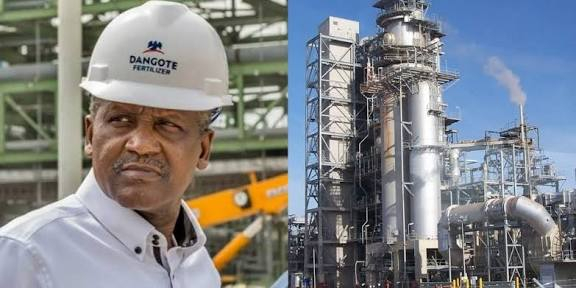800 Jobs Lost, A Nation at Risk: Is Dangote Refinery Bigger Than Nigeria?

❓Is Dangote Refinery Too Big to Obey Workers’ Rights?
The Dangote Refinery, Africa’s largest single-train refinery and Nigeria’s supposed ticket to fuel independence, is no stranger to headlines. But the latest controversy isn’t about production capacity or fuel prices—it’s about workers’ rights, labor justice, and corporate power.
Why Are Nigerian Oil Workers on Strike?
The Petroleum and Natural Gas Senior Staff Association of Nigeria (PENGASSAN) recently declared a nationwide strike after more than 800 employees at Dangote Refinery were dismissed.
Union leaders allege the mass sackings were punishment for attempts by workers to organize and demand representation. To them, this is a direct attack on labor rights in Nigeria and a dangerous precedent if allowed to stand.
Dangote’s Defense: “Restructuring, Not Retaliation”
Dangote Industries Limited, on its part, insists the dismissals had nothing to do with unionization. Instead, the company describes it as part of an internal restructuring exercise. In some statements, the refinery even suggested that sabotage by certain staff may have been behind the purge.
To add more heat, Dangote secured a court injunction against the strike, raising fresh concerns: Can workers legally protest what they see as injustice when a powerful corporation can quickly weaponize the courts?
The Fallout: Fuel Supply and National Stability at Risk
The strike’s ripple effects are already being felt:
Regulatory agencies have shut their offices in solidarity.
Disruption to crude oil and gas supply chains could worsen Nigeria’s already fragile fuel distribution system.
Consumers are bracing for a potential spike in pump prices, an outcome that could inflame the country’s inflation woes and deepen hardship.
For many Nigerians, this isn’t just a union dispute. It’s a test of whether corporate influence can override national interest.
Bigger Questions: Labor Rights vs. Corporate Might
This crisis leaves us with uncomfortable but necessary questions:
Should any single company, no matter how vital, have the power to silence workers?
If Dangote Refinery—a project celebrated as a national pride—ignores labor rights, what message does that send to other industries?
Could this conflict spark a new wave of labor activism in Nigeria’s oil and gas sector?
Government Mediation: Will It Be Enough?
The federal government has stepped in, inviting both parties to the table. But Nigerians remain skeptical. Past interventions in labor disputes have often ended in half-measures or temporary truces.
This time, the stakes are higher. With the refinery holding a strategic chokehold on Nigeria’s energy future, how the government responds could define its credibility on protecting workers.
What This Means for Nigeria’s Future
The Dangote Refinery was supposed to symbolize progress, self-sufficiency, and economic strength. Instead, it now risks becoming the poster child for corporate overreach and suppression of workers’ rights.
If unchecked, the message is clear: profit may come before people.
But if unions hold firm, and if the government enforces labor protections, this could also mark a turning point for stronger workers’ rights in Nigeria.
Final Thought.
So, Nigerians are left asking:
👉 Is Dangote Refinery truly a national blessing, or is it becoming too big to obey the law of the land—especially the rights of the very workers who keep it running?
- Business
- Art
- Causes
- Crafts
- Dance
- Drinks
- Film
- Fitness
- Food
- Spiele
- Gardening
- Health
- Home
- Literature
- Music
- Networking
- Other
- Party
- Religion
- Shopping
- Sports
- Theater
- Wellness
- Technology
- Cryptocurrency
- Psychology
- Internet
- Ecommerce
- Family
- Others
- Science


